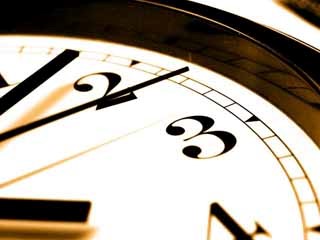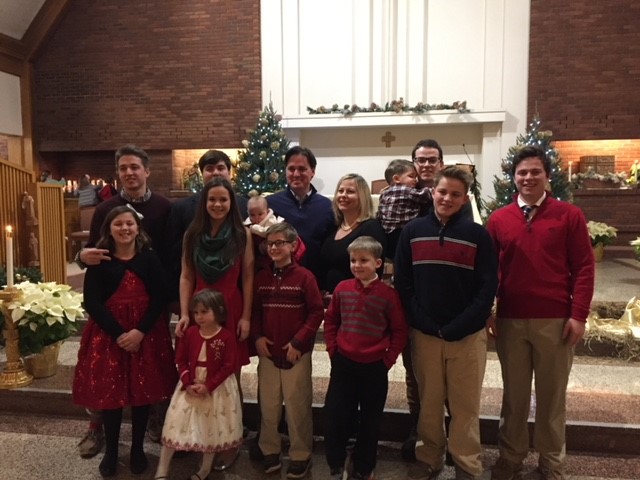Does Ny Count Money Made In Florida
Download Full Guide
What to Await in a Residency Audit
Prepared by the Hodgson Russ Land & Local Tax Practice A Message From Hodgson Russ:
Over the years, we accept been chosen upon to help thousands of clients navigate the murky waters of a New York residency inspect. The procedure tends to be long and arduous. Every client, no matter how sophisticated, has questions and concerns. This booklet was written to give you an overview of the procedure and the law behind it. Nosotros hope you find information technology helpful.
While the focus of our topic in this handbook is on New York audits, you lot should besides find it helpful if you are the unlucky recipient of a residency audit in another state. In particular, northeastern states similar Connecticut, New Jersey, Massachusetts and Pennsylvania all take similar residency rules, so the information outlined in this handbook could provide helpful guidance in those states as well.
Please don't hesitate to telephone call united states of america or whatsoever fellow member of our State & Local Taxation Practice.
WHAT TO EXPECT IN A RESIDENCY AUDIT
A New York Country residency audit is ane of the most difficult, intrusive, and certificate-intensive of all personal income tax audits. And the New York Tax Section has one of the almost sophisticated and aggressive residency-inspect programs in the country. This handbook follows a question-and-reply format that should tell you everything—ok, near everything—you need to know about what happens in these audits. You'll have to call usa if you want to know everything!
WHAT IS A RESIDENCY Audit?
A residency inspect is designed to determine whether you correctly filed as a nonresident or part-year resident of New York. Because New York residents are discipline to tax on their worldwide income while nonresidents are subject field to tax only on that portion of their income attributable to ("sourced to") New York, the difference in revenue enhancement liability tin be significant, particularly if you have substantial investment income.
If at that place is a possibility that you were also a New York City resident, the difference in potential taxation can exist even more meaning since New York City residents also pay revenue enhancement on their worldwide income while New York City nonresidents pay no revenue enhancement to the City at all, even if they piece of work there.
The inspect will more often than not encompass three areas. Showtime, the auditors will focus on the outset residency examination, called the "domicile" exam. Second, the auditors will await to the alternative residency test, chosen "statutory residency." And finally, even if you are able to plant nonresidency, the audit will also examine whether you lot properly "allocated" your sourced income to New York on your revenue enhancement return.
Nosotros usually don't see the New York auditors examining other underlying components of a tax return—such as the income and deductions reported. But in more contempo years, equally auditors have get better trained (and more aggressive), there has been more of a shift in focus to the Unabridged tax render, and then you should be ready for such questions every bit well.
HOW LIKELY IS Information technology THAT I WILL BE AUDITED?
Very likely. If you lot are a high-income taxpayer claiming a move into or out of New York, it'south a nigh certainty you volition be audited. The Taxation Department is sophisticated and aggressive. Consider some of the numbers:
- The tax department has ten commune offices located across the State (and in Chicago).
- At that place are more than 300 auditors who focus on these
- Over the past five years, the Taxation Department has conducted over fifteen,000 of these
- These audits have generated over $one billion in revenue over this fourth dimension
In short, in that location are a billion reasons why the New York Tax Department watches these issues carefully. If you claim a motility from New York, expect to become audited.

HOW IS RESIDENCY DETERMINED?
There are TWO residency tests.
The auditor volition first effort to establish whether y'all aredomiciled in New York. That'due south the first exam.
The second test is more black and white. Under the second test— called "statutory residency"—a taxpayer who is domiciled in another state can all the same exist taxed every bit a resident if they maintain a permanent place of abode in New York and spend more than than 183 days in New York during the year.
If you meet either of these tests, yous are a resident. So nosotros take to exist mindful of both problems.
HOW IS Domicile Determined?
A habitation audit normally is concerned with change: Did the taxpayer move into or out of New York during the audit period? We are often looking to tie that modify to a change in lifestyle or some life-irresolute event, similar a marriage, retirement, new job, and then forth. And despite what many taxpayers and practitioners believe, the inquiry is not really focused on where the taxpayer is registered to vote, maintains a driver'southward license, or registers his cars. Information technology is a much more subjective inquiry, based on long-continuing common-police principles that are frequently difficult to apply. The general standard from the example law is that "the examination of intent with respect to a purported new home [depends on] whether the place of habitation is the permanent home of a person, with the range of sentiment, feeling and permanent association with it."
Critically, the party asserting a change of habitation has the burden to prove, by clear and convincing bear witness, that the taxpayer abandoned his or her celebrated domicile and moved to the new location with the intent to remain at that place permanently. Don't take the burden of proof concept lightly. "Clear and convincing" prove is not defined, only we're sure information technology means better than 51/49. If a taxpayer has the burden of proof in a domicile audit and the case is a close i, a tie will go the New York Taxation Department. Of course, if the Section is asserting a change-of-habitation into New York, the brunt goes the other way, and the Department must prove, by clear and convincing prove, that the taxpayer intended to change his home to New York.
Overall, though, the domicile inquiry has to practice with a taxpayer'due south feelings and intentions, which can exist difficult to quantify. The nonresident audit guidelines that the Department has put together are of cracking value in assisting auditors (and practitioners) in working through the bug that come upwards during a residency audit.
Under the guidelines, the auditor is instructed to analyze the taxpayer's lifestyle, using five "master" factors to determine where the taxpayer's domicile—his or her ane, truthful home—is actually located. An assessment of these "five factors," and a serial of less significant "other" factors equally necessary, is used past the Tax Department as an objective means to a subjective cease: on balance, the place where the factors most heavily favor is likely the taxpayer's habitation.

THE FIVE FACTORS

HOME
The dwelling cistron reviews the apply and maintenance of the taxpayer'southward New York residence as compared with the nature and use patterns of the non-New York residence. In other words, does the taxpayer behave as though the non-New York residence is her "dwelling"? That is especially crucial when a New York residence is acquired by a taxpayer whose domicile is in some other country or when a residence in New York is retained subsequently a motion to some other state. So questions about timing, and which residence was owned or occupied start, are frequently of import. But other questions often ascend. Is 1 residence endemic but the other a rental? What is the value and size
of each residence? What actions did the taxpayer accept to remove herself from the former community? Has she established roots in the new community? Where does the family spend holidays and special occasions? Those are the questions practitioners have to ask -- because we know the auditor will.
ACTIVE Business organization INVOLVEMENT
This factor considers the blueprint of employment and the bounty derived from that employment. It will also examine the taxpayer's active concern involvement other than employment. Ongoing participation in decision-making and frequent communication with a business organisation, fifty-fifty after official retirement, can exist viewed equally the most meaning evidence of one'south domicile. For this gene, nosotros would be looking to determine where the taxpayer actually worked on a 24-hour interval-to-day basis as well every bit the location of his primary role. If the taxpayer is a partner or shareholder in a New York business, the level of participation in the day-to-day management of the business concern can exist looked at as well.
Often, of course, the taxpayer is retired, so this is a nonfactor in some cases. Sometimes a taxpayer moves from New York City out to Westchester County, Long Island, or another City suburb. The taxpayer volition continue to piece of work in New York City subsequently the motility, only as a commuter, and non a resident. Auditors are instructed to be reasonable in this situation, and non inflate the value of this factor vis-à-vis a taxpayer's otherwise strong not-New York City connections.
TIME

Time is often the nigh important factor in a habitation case. Generally, an individual is going to spend the majority of time at his "home." And so the residency audit is naturally focused on this question, and there are a few important aspects of this factor to mention.
- Beginning, often nosotros come across taxpayers focus on the statutory residency test detailed below, and do everything they can to brand sure they spend less than half-dozen months in New York. That's swell, and it'due south obviously important, but a taxpayer who spends 182 days in New York might yet take a residency problem nether the domicile test.
- Second, with the "fourth dimension" factor auditors are trying to determine where the taxpayer spends the majority of his or her time. If the taxpayer does not spend more time in her claimed "home" than in any other location, the auditor will have questions. So we will often focus our clients on the ratio of days spent in the new jurisdiction vs. days spent in New York. The bigger the ratio, often the better the instance.
- A look at the raw number of days spent in any given place, however, is not ever formative either. Indeed, the domicile test is focused on a change in patterns, more than than a simple quantification of days in and out of New York. Thus, for example, a taxpayer who goes from spending 300 days in New York to 150, and from 10 days in Florida to 145, certainly may be able to establish a change in domicile given the modify in pattern.
This gene sometimes takes on less importance for those who commute into New York. Every bit stated past the New York Tax Appeals Tribunal in the Knight case, regular presence and pregnant time in New York Urban center, without further proof of a New York domicile, is not at all inconsistent with a suburban commuter who comes into New York just for "work or play." Forth the same lines, while statutory residency is concerned with a twenty-four hour period count test that focuses on whether the taxpayer spent any part of a day in New York (i.due east., "a minute is a day" in New York), practitioners tin advocate for a different application of the "time" cistron analysis when the facts warrant it. For example, if the taxpayer spent 250 days in New York Metropolis, just didn't spend a single night in New York City during a particular taxation year, the 250 days in New York Urban center volition rightfully carry less significance.
Finally, to state it bluntly, this factor can also exist a real hurting in the neck. Proof of twenty-four hours-to-day location in some course or another is generally required for every single solar day in the audit menstruation. Maintaining, and then producing this evidence on demand, is obviously a time-consuming process, and—like the statutory residency test described below —i that requires an examination of diaries or date books, expense reports, credit cards, phone bills, frequent flier statements, passport, and other similar documents.
NEAR AND DEAR

This cistron is often the most unusual. The accountant volition investigate the location of those items that are of value to the taxpayer, whether the value is monetary or sentimental. Insurance riders are too often used past auditors to attempt to verify the location of treasured items. They are "those personal items which enhance the quality of lifestyle." We like to call this the "teddy bear" test, looking for the things it just wouldn't be "home" without.
FAMILY

This gene used to be considered merely if the auditor was unable to reach a conclusion using the other four "primary" factors. In today's residency audits, however, the "family" factor is analyzed along with the other principal factors in the ordinary course of the audit. The scope of this cistron, however, is somewhat express. Auditors are only supposed to consider where a taxpayer'due south spouse and pocket-size children live in considering where a taxpayer is domiciled. Indeed, as acknowledged in the Tax Section's audit guidelines, the location where minor children nourish school tin be i of the well-nigh of import factors in a dwelling audit. Occasionally, however, the location of other family members (siblings, parents, and and so along) may exist determinative in a person's option to modify domiciles. When we find that to be the example, we bring information technology to the auditor'southward attention.
WHAT ABOUT Changing MY DRIVER'S LICENCE, REGISTERING TO VOTE, ETC?
None of the five "master" domicile factors look to things similar voter registration, driver'due south licenses, and so forth. Those are the and then called "other" factors (so called in the Tax Department's audit guidelines), and include:
- the accost at which depository financial institution statements, bills, and other family and business correspondence are received;
- the concrete location of prophylactic-deposit boxes;
- the location of auto, gunkhole, and airplane registrations and of the taxpayer'due south commuter'south or operator'due south license;
- voter registration, and where and when the taxpayer voted;
- possession of a New York Metropolis parking revenue enhancement exemption;
- telephone services and activity at each residence; and
- a taxpayer's domicile declaration in legal documents such as a will and through property tax exemptions.
And although it is important that taxpayers who change their residence actually do these things, generally these aren't the types of things that are determinative in a residency audit. We like to remember of the "other" factors every bit defensive in nature: We like to have them to dorsum up our residency position, simply they won't be enough to carry the day.
ARE THERE Whatever SPECIAL Safe HARBORS Against THE DOMICILE Exam?
Yes, there are a couple, mainly to cover people who are yet domiciled here but spend very little time in New York or the United States. They are:
- The "30-Solar day" Test. This will utilise to taxpayers who (i) do non maintain a permanent place of abode in New York for any part of a tax yr, (two) exercise maintain a permanent place of dwelling outside of New York for all of the tax year, and (3) spend no more than than 30 days in New York during the tax yr.
- The "548-Mean solar day" Exam. This volition apply to taxpayers who (one) are nowadays in a foreign land on 450 days of whatsoever 548-day menstruum; (2) are not present in New York for more than 90 days of the same 548-day period (and whose spouse and minor children are not present in New York for more than than 90 days of that same 548-day period); and (three) whose presence in New York during any portion of the 548-day flow that is less than a total year volition exist in the aforementioned proportion to the total number of days in the curt period as 90 is to 548.
WHAT IS THE STATUTORY RESIDENCY TEST?
A taxpayer tin also be a resident if he or she qualifies equally a statutory resident, of New York Country and or New York City, nether section 605(b)(ane)(B) of the New York Tax Police. This test has two requirements:
- Maintenance of a permanent place of dwelling (a "PPA");
- x More than 183 days in New York
WHAT IS A PPA?
- A Dwelling Identify. The first requirement—maintenance of a PPA—has a few different parts. First, the place of abode must be "a dwelling place." That means that it must be suitable for homo habitation throughout the year. A rustic hunting campsite lacking running h2o and estrus, for instance, would not qualify as a taxpayer'south PPA. Nor would a dwelling house that is suitable and used simply for vacation purposes past the taxpayer, perhaps because the habitation doesn't take estrus in the winter or year-round route access. And if an abode is under meaning structure, this tin can as well assist to undermine the notion that it is a PPA. Photos, utility bills, construction documentation, and other materials could be used to prove all of this.
- The Gaied Example. Also, the identify of abode must be "maintained" by the taxpayer as a residence for himself. Ownership or a holding Statutory Residency interest in the home, for those purposes, is irrelevant. Based on a 2014 Court of Appeals instance called Gaied (handled by our firm), in club to qualify as a permanent place of abode, there must be some evidence that the taxpayer used the habitation as a residence, or had a "residential involvement" in the abode. Since that example came out, nosotros've been grappling with the Taxation Department about what that really means, so this issue is something to investigate and hash out with your advisor as you set for the inspect.
- Corporate Apartments. Corporate apartments maintained for use by an executive or employee are one case. If a company maintains a corporate apartment that is used by many people, or if an apartment is maintained for something other than equally a residence for the taxpayer or his or her family, that apartment would not be considered the PPA of any one person. The taxpayer under audit would, even so, have to testify that the apartment was regularly used by more than one person (and that, given this fact, the taxpayer didn't have a dedicated space or sleeping accommodation inside the apartment), normally by providing logs or other proof that arrangements must be made in advance for the flat's use.
- The 11-Month Rule. Finally, the PPA must be maintained for substantially all of the twelvemonth. The law contains the "substantially all of the year" test, and the Tax Department has historically interpreted that as a period of time that exceeds 11 months. Then under this "11- month" rule, if you get rid of your place in mid-November or acquire your place in early February, yous should not be subject field to the statutory residency exam regardless of how many days you spend here.

HOW DOES THE DAY COUNT Exam WORK?
The second requirement for statutory residence—spending more an aggregate of 183 days of the revenue enhancement yr in the country (and in New York City, if City residency is an issue)—is oftentimes the most difficult and frustrating aspect of a residency audit.
To begin with, the 183-twenty-four hour period test does not apply to full days just. "Days" for this purpose are parts of days—and whatsoever role of a day is equal to a total day in New York. And so, for example, if the taxpayer wakes up in his New York apartment on Saturday morning, drives to Atlantic Metropolis for the weekend and returns to New York after dinner Sunday evening, he notwithstanding has ii days in New York (he woke up in New York on Saturday and went to sleep in New York on Sunday). Too, the burden of proof is on the taxpayer, and unidentified or undocumented days are counted as New York days. Thus, if there'south no proof of where the taxpayer was on a particular 24-hour interval, can y'all judge how the auditor volition treat it?
Although any part of a 24-hour interval counts as a mean solar day, there are a couple special exceptions:
- Travel Days. Presence in New York is disregarded if it is solely for boarding a plane, train, ship, or bus for a destination outside of New York or if it is a continuation of travel begun outside of New York. For instance, if you lot depart from Connecticut and drive through New York to Maine, your time in New York is not considered for statutory residence day count purposes. If notwithstanding, you leave the highway to take dinner, the day could get questionable.
- Medical Days. Treatment in a New York medical facility is not counted as days in New York for statutory residence purposes. This is inpatient intendance; treatment as an out-patient still counts as a day in New York.

In terms of the documentation needed during the audit, at that place's a whole laundry list of items to consider, including:
- Cell Phone Usage. These records have go the most important source of documentation to rail days. Nearly cell providers maintain records that evidence where the taxpayer's phone was (or what tower the taxpayer'southward phone pinged off of) whenever a telephone call was placed or received. Other providers, such as AT&T, likewise provide location records documenting cell tower locations for every text and information usage issue, also. The tax department tin subpoena these records, or we tin can usually get them ourselves.
- Credit Menu/ATM Statements. Taxpayers tracking their New York time and spouses/children should maintain split up credit cards. American Express separates purchase detail for each separate cardholder on monthly statements, only other companies that aggregate purchases made by various cardholders on a single statement pose serious difficulties for taxpayers on audit. Keep an eye out for entities that generate "false positive" New York activity, which tin can occur because a credit card is on file at a dry cleaner, at a grocery store, or other similar location, or because of online or remote purchases.
- Personal Diary. The Tax Department should take a personal, contemporaneous diary on audit as proof of a taxpayer'due south location, but it frequently doesn't. The credibility of a personal diary is considerably bolstered past corroborating 3rd party documentation.
- Outlook or Like Electronic Calendar. These are useful too, merely taxpayers can retroactively change and suit electronic calendar appointments and entries, which limits the usefulness of these types of calendars on audit. Taxpayers should be careful amending calendar appointments, unless done within a reasonable fourth dimension frame post-obit the original appointment.
- Flight/Travel Records. Taxpayers should keep all travel records, including boarding passes, hotel folios, receipts for fuel and other purchases, limo and taxi receipts, copies of passports (even if expired), etc. Taxpayers should join frequent flyer programs for commercial airlines they fly with, equally the frequent flyer programs can act as a back-upward record of the client's flight history for a number of years.
- EZ-Pass Records. EZ-Pass records are a mutual source of documentation in residency audits, particularly when a taxpayer lives in the tristate expanse and commutes into New York Country or Urban center for work. To the extent possible, taxpayers should exist careful not to commingle EZ-Pass tags among several users or vehicles, as it's often difficult to determine exactly who was in what vehicle at what time when tags are shared. Each family member should have a separate EZ-Pass account in his or her own name. It's sometimes hard to obtain EZ-Pass records from a non-New York EZPass potency, which makes saving EZ-Pass statements as they're generated more than important.
- Driver Logs. If a taxpayer has a personal driver or limousine service, it's important for the driver to go along a detailed and contemporaneous log indicating who was in the automobile, the origination location and destination of each trip, and date and time of each trip.
- Landline Phone. It's often difficult for taxpayers to obtain detailed reports of their landline telephone usage, and sometimes this information would be of limited value anyways, because multiple users could be making or receiving phone calls (including staff and visitors). This doesn't cease the New York taxing authority from issuing subpoenas to obtain landline call particular, withal.
- Swipe Bill of fare Records. Many companies and buildings maintain records and logs of an occupant/employee'south entrance/go out detail through electronic entry systems. When these records are available, auditors are requesting them. These records are ofttimes destroyed on a revolving footing, withal, and thus may only exist available for a limited flow of fourth dimension.
USE OF TECHNOLOGY TO Runway DAYS
Given the try and pain associated with keeping records to testify how many days an individual has spent in a given jurisdiction, information technology may make sense to employ engineering science to automate the process.
Monaeo, for example, has designed software to track the days spent in relevant jurisdictions. Monaeo uses the GPS on a mobile device to exercise this while protecting the individual's privacy. Monaeo has designed its software to:
- Event a alarm when a user is close to a limitation that may create residency in a specific jurisdiction, such as 183 days in New York
- Automatically generate a third-political party record of locations, which may help defend the taxpayer in the event of an audit
IF I WIN THE RESIDENCY TESTS, AM I Washed?
Not and so fast! You nevertheless have to found that, as a nonresident, you correctly allocated your income to New York.
Nether New York'south rules, nonresidents of New York are required to pay tax on income that is derived from "New York sources." Here'south a listing of the typical types of income that could exist treated as New York source income:
- Wage income associated with days worked in New York
- Managing director's fees
- Commissions derived from New York customers
- Income from partnerships or other flow through entities
And here are some items that would normally NOT found income from New York sources:
- Investment income derived from stocks or other "intangible" assets
- Gains on the sale of holding located outside New York
- Income from public pensions
HOW DOES THIS "ALLOCATION" Audit WORK?
Ordinarily the auditor will ask to see copies of West-2s, employment agreements, stock selection agreements, etc. to decide how you earned your wage income.
And then nosotros have to exercise a similar kind of "day counting" that we did for the statutory residency function of the audit. Simply here, the focus is on workdays, and determining the percent of days worked in New York over the period of time in which the income was earned. All of the recordkeeping items above can aid hither, plus things like expense reports, attendance summaries, etc. tin can be helpful.
The rest of this audit process volition depend on how you earn your income. If y'all made money from buying and selling properties, the auditor may request records detailing the underlying transactions. If you lot earned income through partnerships or other catamenia through entities, the accountant will probable request copies of the K-1s associated with those entities. Or if you earned your income through sales of tangible or intangible assets, the accountant volition be looking to determine whether any of those avails were related to New York sources in some mode.
HOW LONG IS THIS Audit GOING TO TAKE?
Residency audits tend to be irksome processes. The accumulation and analysis of the documents can take months. Auditors cannot be hurried in their review of documents. Give-and-take and negotiation can elevate on for months or longer. So prepare for information technology to take at least 6 months to a year.
DID You SAY "NEGOTIATION?"
Yes. The results hither are not always binary, all-or-nothing type conclusions. Many audits are resolved for less than 100% of the tax that might otherwise be due.
WILL I BE CHARGED Involvement ON ANY TAX THAT IS DUE?
Yes. In almost circumstances statutory interest will be added to any tax liability determined as a result of the audit. Information technology cannot be reduced or negotiated. Involvement rates alter quarterly simply accept been generally in the 7.5% range in contempo years.
Will PENALTIES BE ASSESSED?
New York tax law provides for the imposition of penalties for failure to file, failure to pay, substantial understatement of income, and/or negligence. During the negotiation process, we will always pursue the abatement of such penalties as a condition for settlement of the case.
HOW WILL THIS AFFECT MY FEDERAL TAX RETURN?
A New York residency inspect generally does not bear on the federal render for the twelvemonth nether audit. Under pre-2018 law, the New York tax paid as a result of this audit was deductible on your federal return for the electric current year, if you itemize your deductions and were not subject to alternative minimum revenue enhancement. But effective 2018, this do good basically went away, as deductions for state taxes were capped at $10,000 per year.
DOES A RESIDENCY Inspect HAVE ANY IMPACT ON ESTATE TAXES?
It can. A determination that a taxpayer is domiciled in New York applies to income and, potentially, estate taxes.
HOW Will THE NEW YORK Audit AFFECT MY Domicile Land Taxation Return?
We may propose you lot to file a protective refund merits with your abode country to go along its statute of limitations open until the New York inspect is ended. Then, some of the additional New York tax paid may exist used to claim a credit from your dwelling state for taxes paid to some other state. This is not a dollar-for-dollar calculation and will be limited to the amount of taxation you actually paid to that land on the New York income as well as that state's rules with respect to allocation of income and other items.
WHAT Nigh NEXT YEAR?
Domicile, in one case determined, remains the aforementioned until you lot take some action to change it. If abode is the simply issue of your audit, and the accountant agrees y'all are not domiciled in New York, in that location should be no subsequent audit unless you relocate to New York or take some other action that might be construed as relocating.
Statutory residence stands solitary. It can exist examined every year. Every bit a practical thing, though, our feel has been that a taxpayer who has proven they did non spend 183 days in New York during the audit period will probably not be audited again for several years. A taxpayer who was unable to evidence that they did not spend 183 days in New York during the electric current audit catamenia will near certainly be audited again for the subsequent years.
Resource allotment may be reviewed every twelvemonth. In our feel, if a taxpayer proves that he has allocated correctly in his current audit menstruation, the likelihood of a subsequent audit is profoundly reduced.
If you need legal assist with a New York Residency Audit don't hesitate to contact our State & Local Taxation Practice.
Source: https://www.hodgsonruss.com/what-to-expect-in-a-new-york-residency-audit.html
Posted by: saunderscriver.blogspot.com

0 Response to "Does Ny Count Money Made In Florida"
Post a Comment